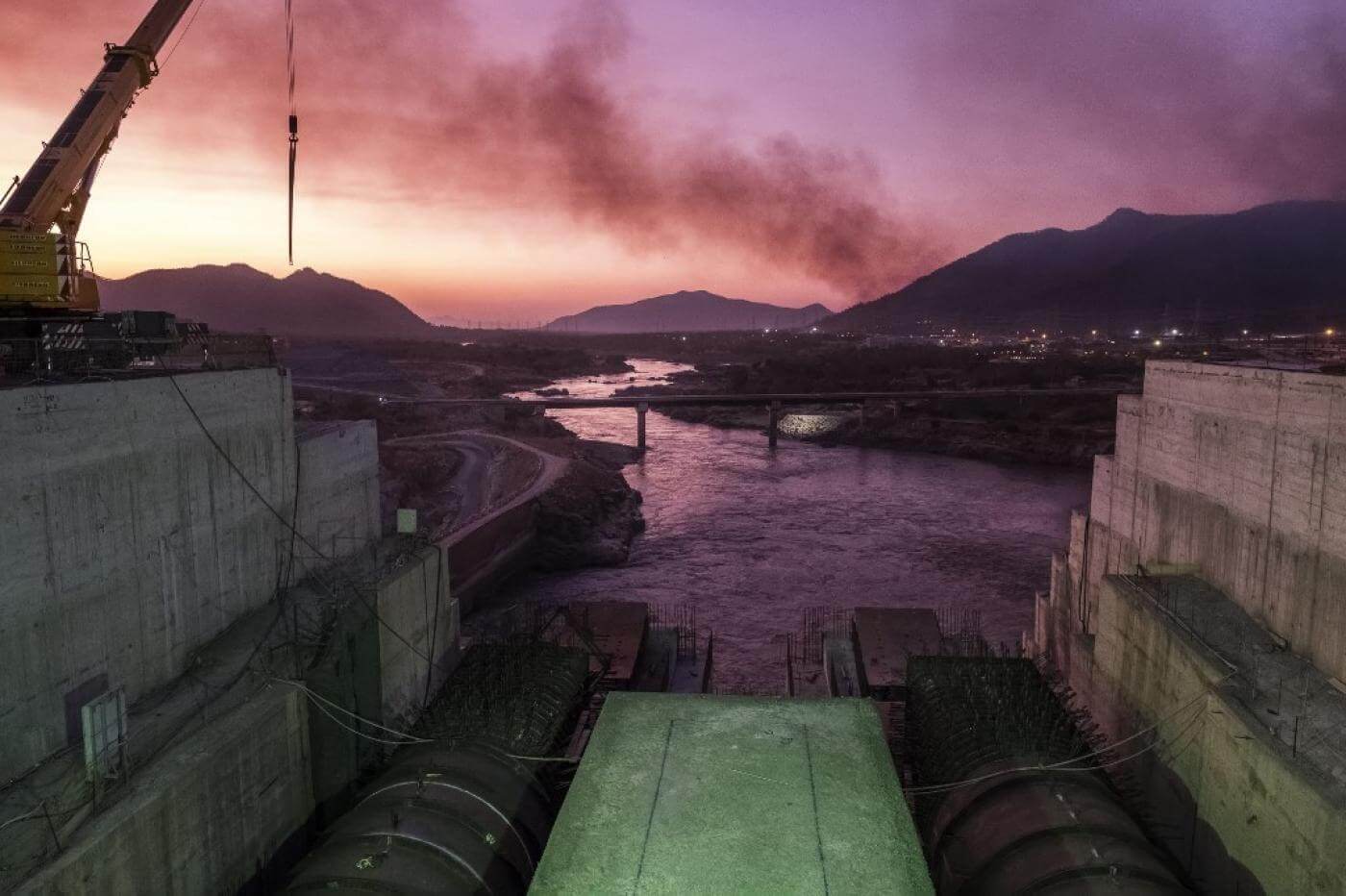Leaders of Ethiopia, Egypt, and Sudan have expressed their hope for an African Union (AU)-brokered deal over the next two or three weeks to end their decade-long Nile water dispute. Sudanese Prime Minister Abdalla Hamdok, Ethiopian Prime Minister Abiy Ahmed, and Egyptian President Abdel Fattah al-Sisi met the AU Commission, presided by South African President Cyril Ramaphosa, via video conference on Friday to discuss legal and technical negotiations for Ethiopia’s $4 billion Rennaisance Dam (GERD) project on the Nile. The meeting was also attended by Kenyan President Uhuru Kenyatta.
In a statement on Saturday, AUC Chair Moussa Faki Mahamat said that more than 90% of the issues in the trilateral negotiations had been resolved during the meeting. A committee of experts and representatives from the three countries and technical personnel from South Africa and the AU is to come up with a deal to resolve outstanding issues and present a progress report in a week.
See also: Ethiopia, Egypt, Sudan Resume Talks on Renaissance Dam After 4-Month Hiatus
The Friday talks at the AU signal the countries’ latest attempts to speed up negotiations that have repeatedly been stalled due to political disagreements, and a shift in posturing of the countries to solve the issue without any foreign intervention. The Ethiopian Prime Minister’s Office said that all three countries agreed that the GERD and the Nile “are African issues that must be given African solutions”.
However, while Sudan and Egypt have said that Ethiopia will refrain from filling the dam next month, no Ethiopian representative commented explicitly on the same.
Previously, Egypt and Sudan had held individual meetings with the World Bank and the US without Ethiopia in February. As expected, Washington stepped further from its boundaries as an observer and presented a deal, which Egypt signed but both Ethiopia and Sudan rejected at the time. The US Treasury had also issued a statement that Ethiopia believed infringed on its sovereign right over its own territory and property.
See also: Can International Arbitration Solve the Nile Water Dispute?
Egypt and Ethiopia have starkly competing views when it comes to the use of the Nile. Egypt sees itself as the first and natural user of the Nile, exploiting its water more than any other state. Its position on the GERD stems from fears that the dam will reduce its own supply of Nile water and that its diversion would lead to a significant amount of evaporation and water loss. Therefore, its paramount interest is preserving the current status quo. But, Ethiopia, which only consumes less than 1% of the river’s water right now, stands to significantly reduce drought and malnourishment within its borders by exercising its right to utilize the natural resources in its own territory by way of the GERD.
Image Source: Middle East Eye

